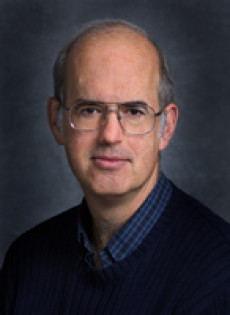Computational Research Division Announces Reorganization
October 12, 2011
Contact: Jon Bashor, jbashor@lbl.gov, 510-495-5849
David Brown, who recently joined Berkeley Lab as director of the Computational Research Division (CRD), announced a reorganization of the division on Oct. 12. The reorganization is aimed at balancing the size and research areas of the departments within CRD.
In conjunction with the reorganization, Brown and Associate Lab Director for Computing Sciences Kathy Yelick announced the designation of four department heads as the primary points of contact for program managers in DOE’s Office of Advanced Scientific Computing Research (ASCR).
CRD’s High Performance Computing Research Department, originally carved out of the research projects at NERSC, had become too large and will become three departments. Although the groups will be realigned within these new departments, the current group leads and group members will remain as they are.
John Bell will lead the Mathematics and Computational Science Department, which consists of the Center for Computational Sciences and Engineering (John Bell, group lead), the Mathematics Group (James Sethian, group lead) and the Computational Cosmology Center (Peter Nugent, group lead).

Esmond Ng
Esmond Ng will lead the Applied Mathematics and Scientific Computing Department, which comprises the Applied Numerical Algorithms Group (Phil Colella, group lead), the Scientific Computing Group (Esmond Ng, group lead) and the Complex Systems Group (David Bailey, group lead).
John Shalf will lead the Computer and Data Sciences Department, which includes the Visualization Group (Wes Bethel, group lead), the Scientific Data Management Group (Arie Shoshani, group lead), the Future Technologies Group (Erich Strohmaier, group lead), and the Advanced Technologies Group, which has moved from NERSC to CRD as part of this reorganization, (John Shalf, group lead). ATG will continue its NERSC mission work with John as ATG lead at NERSC.

John Shalf
But not everything will change. The Advanced Computing for Science Department will to be led by Deb Agarwal. And Victor Markowitz will continue his leadership of the Biological Data Management and Technology Center.
Brown said the new organization will provide “good load balancing in terms of total head counts and expertise,” creating departments that are easier to manage, thereby allowing the department heads time to also focus on strategic issues. The smaller sizes and more closely aligned intra-departmental topic areas also mean the department heads will be better able to represent the technologies in their departments.
“As I applied for and was interviewed for this position, I was very impressed by the depth and range of excellent research conducted by CRD staff,” Brown said. “One of my goals is to raise the overall visibility and recognition of our division at both the Laboratory and in the Office of Science.”
Points of Contact
To streamline communications between Berkeley Computing Sciences and ASCR program managers, Yelick and Brown asked several department heads to serve as the primary points of contact (POC). John Bell will continue as the POC for the ASCR applied mathematics base program. John Shalf will become the POC for the ASCR computer science, visualization and data science programs. Esmond Ng will become the POC for the ASCR Partnership programs (SciDAC). Steve Cotter, ESnet Department Head, will continue as the POC for ASCR networking research. In addition, Ng will act as overall coordinating POC for ASCR programs, coordinating Computing Sciences’ response to program opportunities by providing information to PIs and assisting with the development of multi-division and multi-institutional collaborations. Brown and Yelick will continue to be the principal points of contact with ASCR upper management, in particular with the office of the ASCR Associate Director and the ASCR Division Directors.
For more information about computing sciences at Berkeley Lab, please visit: www.lbl.gov/cs
About Computing Sciences at Berkeley Lab
High performance computing plays a critical role in scientific discovery. Researchers increasingly rely on advances in computer science, mathematics, computational science, data science, and large-scale computing and networking to increase our understanding of ourselves, our planet, and our universe. Berkeley Lab’s Computing Sciences Area researches, develops, and deploys new foundations, tools, and technologies to meet these needs and to advance research across a broad range of scientific disciplines.







 Instagram
Instagram YouTube
YouTube